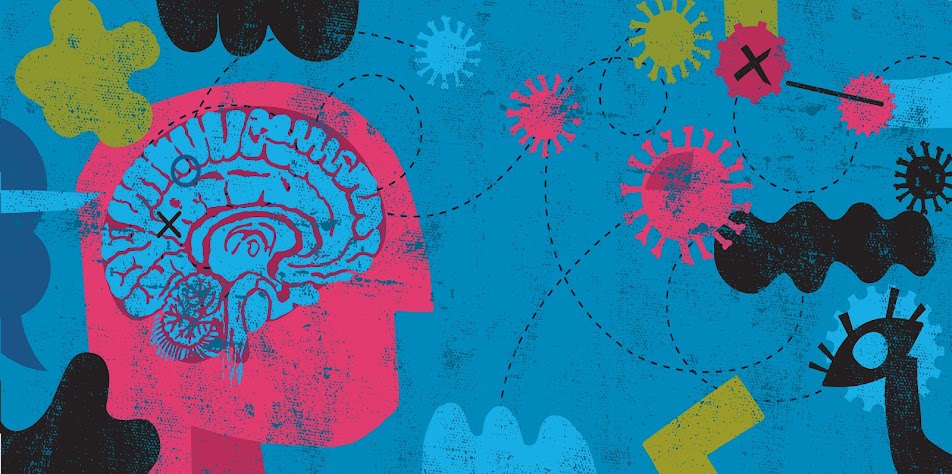Is depression a symptom of COVID-19?
Fever. Chills. Cough. Difficulty breathing. Fatigue. Body aches. Headaches. Loss of taste and/or smell. Sore throat. Runny nose. Nausea.
These, of course, are the COVID symptoms we have all come to know so well these last two years. And, if you're anything like me, when you have just one of these symptoms — even the smallest tickle in your throat — you freak out, thinking you caught the dreaded virus.
With the Omicron variant being more contagious and more resistant to vaccines, it feels like we've all been trapped inside a depressing game of Pac-Man — with us being the Pac-Men and COVID being the ghosts we're dodging.
Whelp, to kick off the New Year, COVID finally got me, despite being vaccinated X 3. And, while I did experience some of those symptoms, the thing I wasn't prepared for was the effect COVID would have on my mental health.
It really shouldn't have come as a surprise. Many COVID symptoms mimic depression, such as poor sleep and impaired concentration. And the stress, fatigue and isolation that comes from COVID — well, that is pretty much a breeding ground for depression, especially for those of us who already struggle with our mental health.
For me, the uncertainty of COVID has also been difficult for me since, as we all know, uncertainly is the antagonist of any anxious person's life. One day, I could feel fine, and then the next day, I would wake up and barely be able to get out of bed because I felt so sick. Now, two weeks after my onset of symptoms, it's hard to feel relieved. I'm still not sure if it's really over, and everyday, even as my symptoms wane, I'm waiting for the other shoe to drop.
And this all may explain why, on Monday, I found myself ugly crying off and on for at least eight hours straight. It's because I'm both mentally and physically drained.
Dr. Maura Boldrini of Columbia University Irving Medical Center suggests that biological changes caused by COVID may be why some of us experience mental — and not just physical — side effects after contracting the virus.
"We’ve known for a long time that there’s a link between viral infections and mental health. ... There is evidence that a small amount of virus may be able to enter the brainstem and cerebellum via circumventricular organs," she said.
"Based on what we know about COVID so far, systemic inflammation may unleash chemicals that trigger symptoms such as hallucinations, anxiety, depression, and suicidal thinking, depending on which part of the brain is affected."
WebMD reports that, in a study of COVID-19 survivors, more than half of the sample reported symptoms of depression months after recovery. Many survivors of COVID-19 have also reported symptoms of PTSD, OCD, anxiety and insomnia.
So here's the lesson I've learned from all this. That you need to be extra kind to yourself as you recover from COVID. Let yourself cry. Let yourself rest. Stop thinking, "It's been weeks or longer, I should feel better by now!" Give yourself as much time as you need to recover. Your body and mind have been through a lot and they need some extra pampering right now.
And, if these symptoms of depression continue even after your COVID symptoms are gone, then seek help from a professional. Talk to your primary care physician, who can treat mental health issues or refer you to a psychiatrist or therapist for additional help. For Michigan residents, you can also find resources by calling/texting Common Ground's 24/7 crisis line at 800-231-1127. If you or someone you know is considering suicide, call the National Suicide Prevention Lifeline at 800-273-8255.











0 comments